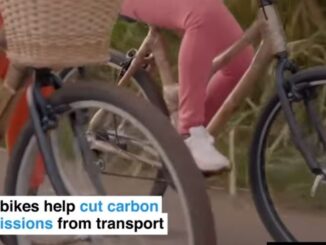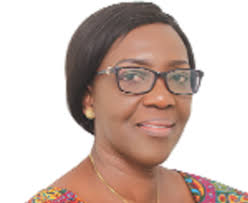-smile-gavua-dzisi.jpg)
By Mildred Siabi-Mensah /Crossland Agyemang
Effia (WR), The Takoradi Technical University Chapter of Women in Technology, Education Development, (WITED) has been inaugurated with a call on stakeholders to support the girl child to pursue programmes in Science, Technology, Environment and Mathematics (STEM).
The girl child when encouraged to pursue programmes in STEM would contribute meaningfully to the advancement of societies.
Issues of gender mainstreaming into male dominated fields have become topical in recent times that harnessing and leveraging on their benefits have been so important that policy makers and parents have given the girl child the right footings in breaking barriers in the areas of STEM.
Professor Smile Dzisi, President of WITED, Western and Central Africa inaugurating the Technical University Chapter in Takoradi said harnessing equity called for support and breaking socio cultural boundaries whiles ensuring adequate exposure of the girl child to this male dominated sectors.
The inauguration was on the theme “Harnessing Technical and Vocational Education to Enhance Gender Equity for National Development”.
In Ghana, Technical Vocational Education and Training (TVET) systems are often gender-biased, affecting men and women’s access to specific learning programmes or occupations. Such gender divisions contribute to the perpetuation of gender inequalities at work and society at large.
Professor Dzisi who is also the Vice Chancellor of Koforidua Technical University noted the UNESCO Institute for Statistics has estimated the percentage of female students worldwide in vocational programmes to be 44 percent, the Ghana Education Sector Performance Report issued in 2015 also indicates that gender parity in TVET was weakening as it had fallen from 50% in the 2009/2010 academic year to 29% in 2015, a worry trend, she expressed.
She said the ILO World Employment Social Outlook 2015, showed that women continued to suffer from higher rates of unemployment were less likely to participate in the labour force and face higher risks of vulnerable employment.
She stressed it was widely recognised that TVET could contribute to equity by enabling individuals to access the labour market, livelihood and lifelong learning opportunities.
“We need a deliberate and conscious effort to change things and make diverse leadership possible for better nation building.”
She said WITED would work to step up interest of girls in the basic, Senior and even tertiary institutions to choose programmes in the science and with the requisite support and enabling environment, they would be able to contribute meaningfully to decision making for progress.
Professor Frank John Eshun, the Vice Chancellor of the University, encouraged a strong advocacy for many more women in TVET education to realise more opportunities.
“We need a gender responsive strategy, since educating a woman transcend beyond herself to many individuals and generation…we at the university are ready to work to support many more women to enrol in the subject area.”
Nana Akua Birmeh, an Architect, noted that achieving the Sustainable Development Goals (SDG), called for hard work to have more women in industry and manufacturing sectors.
Dr Eudora Hagan, the Chapter President pledged their commitment to ensure increased awareness on TVET education and its bearings on development and the need for the country to pay attention to the sector.
GNA



